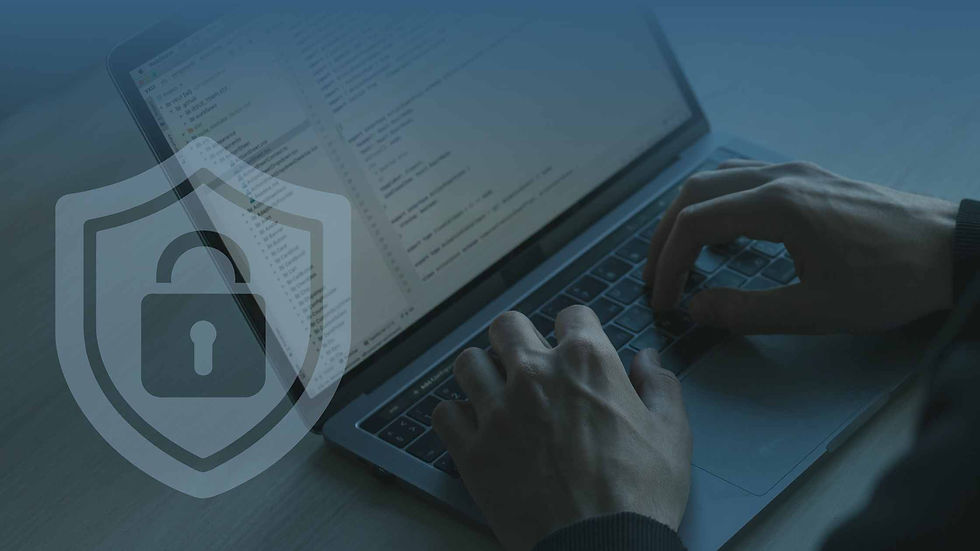
As small business owners, you wear many hats — from finance manager to customer service representative. However, in today’s digital age, there’s one critical role you cannot afford to overlook: that of a cybersecurity advocate. With increasing reliance on technology and the internet, cyber threats pose a significant risk that can derail your hard work and investment.
Why Cybersecurity Matters
In Pennsylvania, nearly 99% of businesses fall into the small business category. While small businesses may think they’re too insignificant to be targets for cybercriminals, this couldn't be further from the truth. Here are some sobering statistics concerning the cybersecurity threat for small businesses owners:
Accenture’s Cybercrime study reveals that nearly 43% of cyber-attacks on small businesses.
Only 14% of these accounted SMBs are prepared to face such an attack.
On average, SMBs spend between $826 and $653,587 on cybersecurity incidents.
95% of cybersecurity breaches are attributed to human error. (World Economic Forum)
The next five years are due to see a 15% increase in cybercrime costs reaching 10.5 trillion by 2025.
These attacks can lead to devastating data breaches, financial loss, and reputational damage. Protecting your business is not just about securing your digital assets; it’s about safeguarding your customers, employees, and bottom line.
Five Key Strategies to Enhance Cybersecurity in 2025
1. Regular Security Audits
Conduct regular security audits to identify vulnerabilities in your systems and networks. Perform penetration testing to assess your infrastructure’s resilience against cyber-attacks. Regularly update and patch software to prevent exploitation of known vulnerabilities. By proactively assessing your security measures, you can address any weaknesses and implement necessary improvements.
2. Data Encryption
Implement robust data encryption methods to protect sensitive information. Encrypting data ensures that even if it’s intercepted, it remains unreadable to unauthorized parties. Utilize encryption tools for emails, file transfers, and storage. Additionally, consider using full-disk encryption on all devices to protect against physical theft or loss.
3. Implement Multi-Factor Authentication (MFA)
One of the simplest yet most effective ways to protect your business is to implement Multi-Factor Authentication (MFA) on all accounts that hold sensitive information. MFA requires users to provide two or more verification factors to access an account, making it significantly tougher for unauthorized individuals to gain entry. In 2025, consider using MFA across all your platforms — from email accounts to financial systems. Not only will this bolster your security, but it also instills confidence in your clients that their information is safe with you.
4. Conduct Regular Security Training & Awareness Programs
A significant portion of cyber breaches results from human error. To combat this, regular cybersecurity training should be an integral component of your business operations. In 2025, make it a priority to educate your employees on the latest phishing scams, password management, and safe browsing habits. Consider hosting quarterly training sessions or bringing in external experts to keep your team informed about emerging threats. An informed employee is often your first line of defense against cyber threats.
5. Strengthen Your Data Backup and Recovery Plan
Cyber threats, such as ransomware attacks, can paralyze your business if you don’t have a robust data backup and recovery plan. In 2025, ensure that your data backup processes are reliable and regularly updated. Utilize a combination of local and cloud-based backup solutions to store critical business information securely. Regularly test your recovery procedures to ensure that, in the event of a cyber incident, you can quickly restore operations with minimal downtime. Remember, it’s not just about preventing attacks — it’s also about being prepared for when they happen.
Don’t Wait Until You’re a Victim
The digital landscape continues to evolve, and so do the threats that come with it. As we move into 2025, small businesses in Pennsylvania must prioritize cybersecurity to protect their assets, clients, and reputation. By implementing Multi-Factor Authentication, conducting regular employee training, and establishing a solid data backup and recovery plan, you can significantly enhance your business’s cybersecurity posture.
Remember, cybersecurity isn’t just an IT issue; it’s a fundamental aspect of your business strategy. Stay informed, stay vigilant, and ensure that your small business is not just a statistic in the growing number of cybercrime victims. If you have further questions or need assistance establishing these best practices, don’t hesitate to reach out to a legal professional specializing in cybersecurity. Your business deserves the best protection possible!